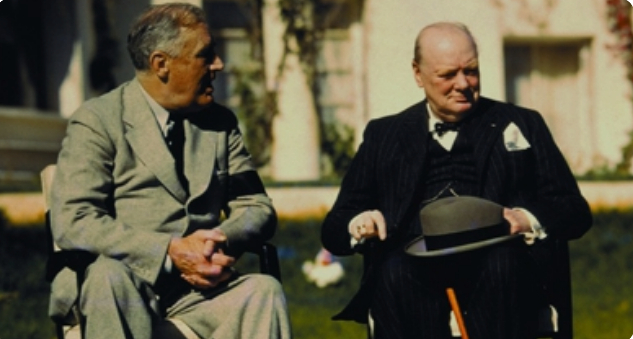
In This Article
- Why is honesty the foundation of great leadership?
- How does trust impact a leader’s influence?
- What separates true leaders from power-hungry figureheads?
- Why do so many leaders fail to gain real respect?
- How can you develop leadership integrity in daily life?
Effective Leadership: Why Honesty and Trust Matter More Than Ever
by Robert Jennings, InnerSelf.comLet’s be real—most so-called leaders today aren’t leaders at all. They’re performers, playing a role designed to manipulate, not inspire. Whether it’s politicians spinning false promises or corporate executives padding their pockets, trust in leadership is at an all-time low. People are tired of being lied to. And that’s exactly why real leadership—built on honesty and trust—matters now more than ever.
Look at the approval ratings of world leaders today. Barely anyone trusts them. Why? Because we’ve been burned too many times. Corporate scandals, political corruption, leaders caught in lies—it’s a never-ending cycle. People are craving something real. They don’t need another soundbite; they need leaders who act with integrity, who mean what they say, and who don’t treat leadership like a personal power trip.
The Core of Effective Leadership: Honesty, Trust, and Service
Strip away the titles, the power, the influence—what’s left? A leader is only as strong as their integrity. Honesty builds trust. Trust builds loyalty. And loyalty builds the kind of leadership that lasts beyond election cycles or quarterly reports. If you can’t be trusted, you can’t lead. It’s that simple.
Yet, in today’s world, honesty almost seems like a liability. The honest politician? Too weak. The truthful CEO? Naïve. But the reality is, the greatest leaders in history—Lincoln, Mandela, Roosevelt—were all honest to a fault. Their truthfulness didn’t make them weak. It made them the kind of leaders people would follow into the fire.
Historical Examples of Great (and Terrible) Leaders
Take Abraham Lincoln. He wasn’t popular with everyone, but he was honest, straightforward, and deeply committed to a higher purpose. He led a nation through its darkest time because people knew he wasn’t playing politics—he was leading with conviction.
Now, contrast that with Richard Nixon—whose paranoia and dishonesty not only cost him the presidency but permanently scarred public trust in government. He had the intelligence, the skills, and the experience to be a great leader. But in the end, his lack of integrity defined his legacy.
Or look at Winston Churchill. The man was blunt, sometimes painfully so. But even when he told his people that the road ahead would be filled with "blood, toil, tears, and sweat," they followed him. Why? Because he never sugarcoated reality. He treated people with the respect they deserved—by telling them the truth.
Why Many So-Called Leaders Fail
The biggest reason leaders fail? Arrogance. When leaders start believing they’re untouchable, they cut corners, manipulate the truth, and lose sight of their real purpose. Power doesn’t corrupt—it reveals. If someone in a position of power lacks integrity, it won’t take long before they self-destruct.
Take Enron’s leadership. Executives at the top looked invincible—until their lies about profits caught up with them. When the truth came out, the entire company collapsed, costing thousands their jobs and decimating retirement accounts. The lesson? Dishonest leadership isn’t just unethical—it’s bad business.
We’ve seen it in politics, too. Leaders who surround themselves with “yes-men,” who refuse to take accountability, who believe they can manipulate their way through anything—eventually, they all fall. Because trust, once broken, is nearly impossible to rebuild.
The Psychological Power of Trust in Leadership
People don’t follow titles; they follow trust. Studies show that employees who trust their leaders are more engaged, innovative, and productive. The same applies to nations—societies that trust their leaders are more stable, prosperous, and less prone to extremism.
The takeaway? Leadership isn’t about control. It’s about influence. And influence only works when people believe in you.
Think about the companies people love to work for—places like Patagonia or the old-school version of Apple under Steve Jobs. They built loyalty by prioritizing trust. Employees weren’t just cogs in a machine; they were valued members of a mission-driven organization.
The Failings of Donald Trump's Leadership and the Inevitable Consequences
Donald Trump's leadership style is characterized by dishonesty, self-interest, and a disregard for established norms, which undermines trust and stability both domestically and internationally. These traits not only erode public confidence but also jeopardize the nation's standing on the global stage.
One glaring example is his administration's approach to foreign policy, particularly concerning Ukraine. In a stark departure from previous U.S. support, Trump's administration has signaled a pivot towards Russia, undermining Ukraine's sovereignty and destabilizing regional security. This shift not only betrays an ally but also emboldens adversarial powers, compromising global trust in U.S. commitments. As reported by The New Yorker, recent developments have confirmed fears of significant policy shifts under Trump's leadership, threatening Ukraine's future and the unity of U.S. support. [Source]
Domestically, Trump's economic policies have failed to address pressing issues like inflation and the rising cost of living. Despite promises to improve the economy, many Americans continue to struggle with escalating prices, leading to growing disillusionment among his supporters. As highlighted by The Guardian, there are growing signs of disillusionment among Trump's supporters due to unfulfilled promises to reduce living costs, especially food prices. [Source]
Furthermore, his administration's internal purges, such as the removal of top military officials, reflect a preference for loyalty over competence. This undermines the integrity of essential institutions and raises concerns about the administration's commitment to national security. Vox reports that Trump's significant military purge may be seeking a military alignment more favorable to their political agenda rather than strictly national security interests. [Source]
Trump's leadership is also marked by a pattern of aligning with authoritarian figures, often at the expense of democratic values and alliances. This not only isolates the U.S. from traditional allies but also creates a power vacuum that adversarial nations are eager to fill. The Atlantic argues that President Trump is actively undermining U.S. global leadership, which will benefit China and its leader, Xi Jinping. [Source]
In essence, Trump's leadership deficiencies—manifested through dishonesty, self-serving policies, and a disregard for democratic principles—are poised to lead to widespread failure. Without a course correction, these traits will continue to erode both national and international trust, ultimately compromising the nation's future stability and prosperity.
How to Become a Trustworthy, Effective Leader Today
So how do you lead with integrity? Start with these three rules:
1. Tell the truth—even when it’s uncomfortable. People respect honesty, even when they don’t like it.
2. Serve others before yourself. Real leadership is about lifting people up, not using them as stepping stones.
3. Stay accountable. When you make a mistake, own it. Excuses erode trust. Accountability builds it.
Want to be a leader people actually follow? Show up. Keep your word. Be honest when it’s easier to lie. And never, ever ask someone to do something you wouldn’t do yourself.
Real Leadership in a World That Needs It
We’re at a crossroads. Do we continue to accept leadership built on deception, or do we demand something better? The answer starts with us—because leadership isn’t just about those in power. It’s about the choices we make every day, in our communities, workplaces, and homes. The world needs real leaders. Will you be one of them?
Real leadership doesn’t require a title. It requires courage. It requires honesty. It requires the willingness to serve others, not yourself. If you have those qualities, you already have what it takes to be the kind of leader the world desperately needs.
About the Author
 Robert Jennings is the co-publisher of InnerSelf.com, a platform dedicated to empowering individuals and fostering a more connected, equitable world. A veteran of the U.S. Marine Corps and the U.S. Army, Robert draws on his diverse life experiences, from working in real estate and construction to building InnerSelf with his wife, Marie T. Russell, to bring a practical, grounded perspective to life’s challenges. Founded in 1996, InnerSelf.com shares insights to help people make informed, meaningful choices for themselves and the planet. More than 30 years later, InnerSelf continues to inspire clarity and empowerment.
Robert Jennings is the co-publisher of InnerSelf.com, a platform dedicated to empowering individuals and fostering a more connected, equitable world. A veteran of the U.S. Marine Corps and the U.S. Army, Robert draws on his diverse life experiences, from working in real estate and construction to building InnerSelf with his wife, Marie T. Russell, to bring a practical, grounded perspective to life’s challenges. Founded in 1996, InnerSelf.com shares insights to help people make informed, meaningful choices for themselves and the planet. More than 30 years later, InnerSelf continues to inspire clarity and empowerment.
Creative Commons 4.0
This article is licensed under a Creative Commons Attribution-Share Alike 4.0 License. Attribute the author Robert Jennings, InnerSelf.com. Link back to the article This article originally appeared on InnerSelf.com
books_behavior
Article Recap
Honesty, trust, and service define effective leadership. In a world filled with deceptive leadership, true leaders stand out through integrity. This article explores historical examples, leadership failures, and the psychology behind trust. Learn how to cultivate leadership that earns real respect.
#EffectiveLeadership #TrustworthyLeader #LeadershipIntegrity #HonestLeadership #TrueLeadership



